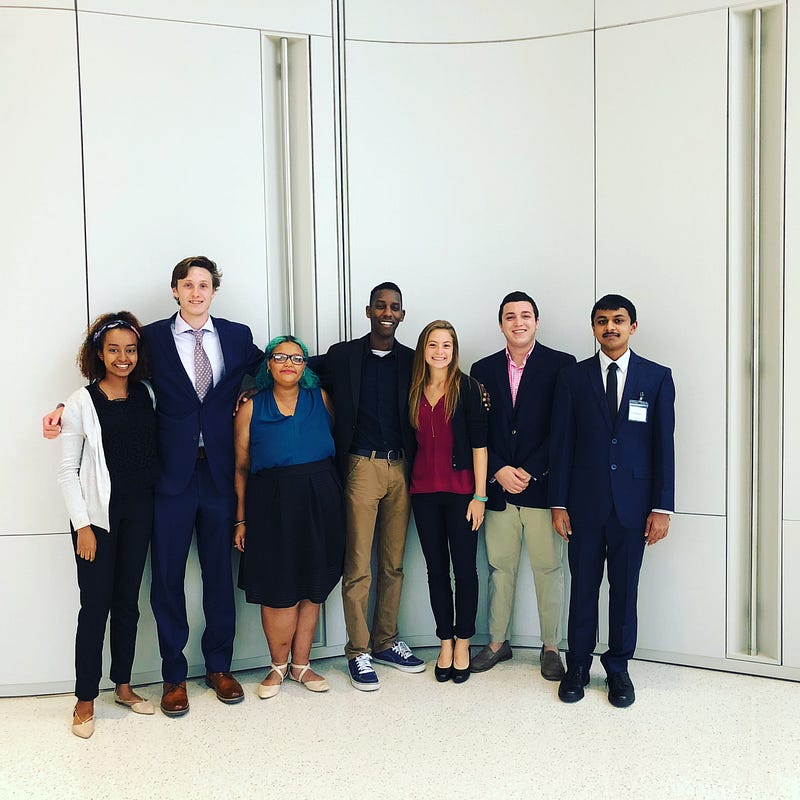
The Hamilton College Model United Nations team traveled to Boston from Oct. 4–7 to participate in the prestigious Boston Area Model United Nations (BARMUN) conference, which is hosted by Boston University’s team. Hamilton is nationally-ranked in the top 75 college MUN teams. Many national competitors were also in attendance, such as the University of Chicago, University of Pennsylvania, George Washington University, and Georgetown University.
Hamilton’s team consisted of Connor Feldman ’22, Lindsey Foster ’20, James Goggins ’20, Mukund Jayaram ’22, AlMahdi Mahil ’20, Sam Ntim-Addae ’21, Saphire Ruiz ’22, and Emnet Sisay ’22. Half of the team were first-years, making this one of their first college conferences, aside from the conference some recently attended at Columbia University. “It was challenging and at a level well beyond high school MUN, but I learned a lot and met people from all over the country,” said Jayaram.
The keynote speaker at this year’s conference was Munira Khalif. She founded the nonprofit Lighting the Way, which seeks to provide accessible education to girls in East Africa through scholarships and funding of academic resources. She just finished serving as the 2017–2018 U.N. Youth Observer, which involved responsibilities such as speaking at the UN and travelling around the U.S. to address pressing issues concerning youth in America.
The conference included 14 committees of General Assemblies, Specialized Committees, and Crisis Committees. Hamilton participated in several of them, including 2020: The CDC on Antibiotic Resistance, the First Italo-Ethiopian War, and the Joint Crisis Committee on the Iran Hostage Crisis. Other committees included the European Regional Development Fund, 1991 Somaliland, Manuel Zelaya’s Cabinet, a 2017 Uber Executive Board Meeting, and more.
Hamilton students in the CDC committee were faced with the consequences of societal overuse of antibiotics. Superbugs were projected to kill over 300 million people in the near future, with more people dying from cancer each year. The Committee had to debate the best solution to global disease control before it was too late.
Delegates in the First Italo-Ethiopian War acted as governmental figures in Ethiopia. The committee discussed the best plan of action to remove the Italians from their land and protect their kingdom.
Feldman and Jayaram worked as a team in the only Joint-Crisis Committee (JCC) offered at the conference. The JCC on the Iran Hostage Crisis was made up of two committees, one representing the United States and the other representing the Iranian students. The Iranian students had to decide how to best use their power to demand an end to American interference in Iranian affairs, while the United States had to debate how to effectively save the hostages. Feldman, who represented the United States, said about his experience: “I got to immerse myself as a different person in a different time, and see historical events through the eyes of someone making the decisions.” In addition, this experience taught him valuable life skills. “Though I didn’t agree with everyone’s perspective, and even my own at times, I learned how to collaborate across the aisle,” he said.
Feldman and Jayaram both described the conference as “very successful.” The team hopes to continue this success at Yale’s conference in January.

















